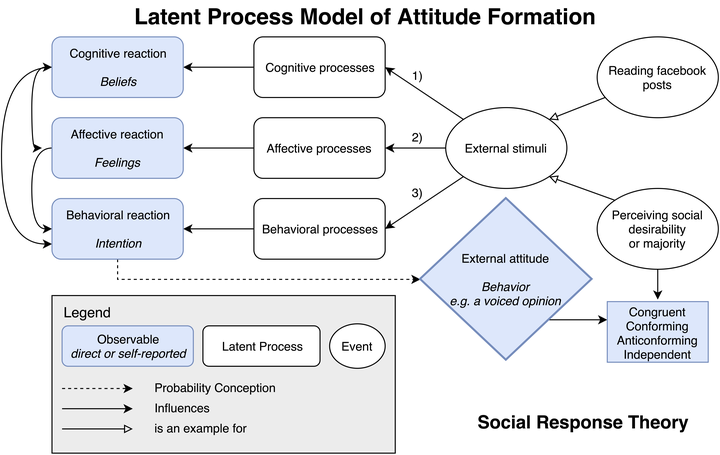Towards an Understanding of Opinion Formation on the Internet: Using a Latent Process Model to Understand the Spread of Information on Social Media

Abstract
Understanding what drives the process of opinion formation has been studied since the 1960s. With the advent of the social web, this process has drastically changed, as everyone can easily reach out to the global public. However, not everyone expresses their opinion on social media. Understanding what governs this process is crucial to understanding the spread of information on the Internet. We use a latent process model to simulate opinion formation using agent-based modeling. By creating an artificial social network with artificial users and content, we simulate the reaction of users to content and the resulting spread of information. We inform our model from a questionnaire survey study that indicates that actual sharing is rare for a large proportion of users. Our findings indicate that deep network penetration can not be explained by user behavior alone and that “minority effects” might require large scale simulations to be seen. Future research should thus incorporate simulated algorithms and larger populations.